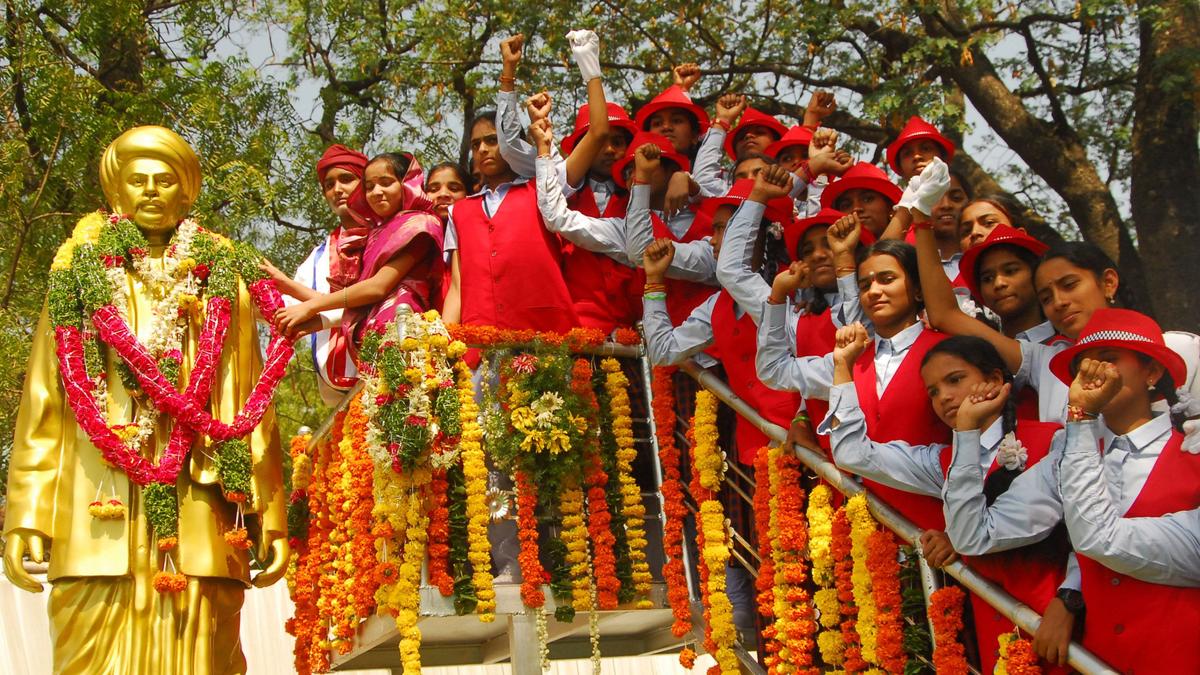Jyotiba Phule: Pioneer of Social Justice and Emancipation

- 13 Apr 2025
Introduction:
Jyotiba Phule (1827–1890) stands out as one of the foremost social reformers of 19th-century India, whose contributions to education, caste reform, women's rights, and rationalist thought continue to influence contemporary debates on social justice.
Born into the Mali casteinMaharashtra, Phule’s awakening began in 1848 after facing caste-based humiliation at a Brahmin wedding. That same year, inspired by Cynthia Farrar (a Christian missionary) and rationalist Thomas Paine, he and his wife Savitribai Phule established India’s first school for girls. By 1851, they had opened 18 schools, and later, night schools for workers and women—challenging both gender and caste hierarchies in education.
Phule’s activism extended beyond education. In 1873, he founded the SatyashodhakSamaj (Society of Truth Seekers), an organization aimed at eradicating caste-based oppression and challenging Brahminical dominance. His work Gulamgiri (Slavery) (published in 1873) likened the condition of Dalits and Shudras to that of African-American slaves, emphasizing systemic subjugation through religious orthodoxy.
Phule argued for compulsory primary education, particularly for the rural poor. In his Statement to the Education Commission, he recommended scholarships, annual prizes, and mandatory schooling up to age 12, noting that agricultural poverty kept children away from education.
In his agrarian treatise ShetkaryancheAsud (Farmer’s Whip), Phule proposed:
- Employing army personnel in public works like dams and bunds.
- Returning village pasture lands from the Forest Department.
- Importing cattle for meat to preserve draught animals crucial to agriculture.
These proposals reflected his commitment to economic upliftment of farmers and sustainable agricultural practices.
Phule’s spiritual views evolved toward rational humanism. Though he respected the equality-based ethics in Islam and Christianity, his final philosophical work, Sarvajanik Satya Dharma Pustak, rejected all sectarian religious texts and called for a universal spiritual order. He questioned caste sanctity, ridiculed the notion of sacred superiority, and criticized the irrationalities in scriptural justifications.
He strongly supported women’s rights, defended PanditaRamabai’s conversion, and denounced polygamy, arguing for gender parity in both religious and social spheres. He wrote, “How would men feel if women married more than one man?”
Despite opposition from Bal Gangadhar Tilak and orthodox Hindu nationalists, Phule remained focused on uplifting the oppressed, even bailing Tilak out of jail at one point—illustrating his commitment to justice over personal differences.
Phule’s legacy remains crucial in modern India’s quest for social equity. His efforts to democratize education, dismantle caste, and promote inclusive governance laid the groundwork for India's later constitutional and social reforms.
